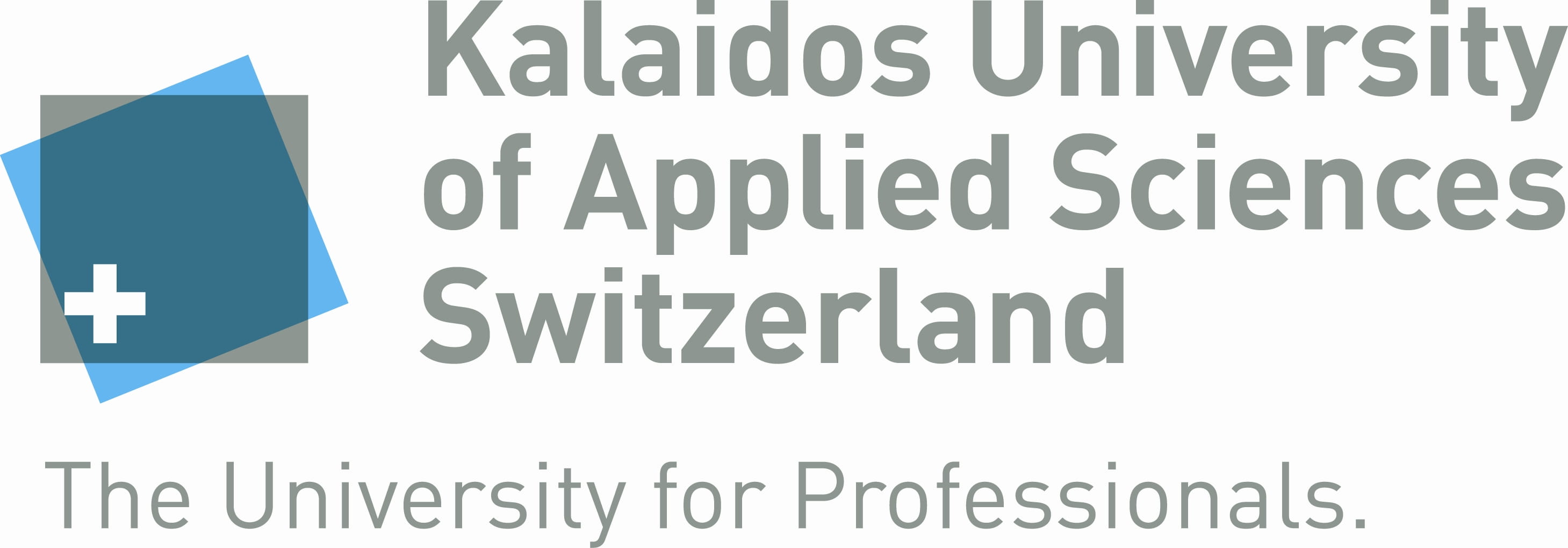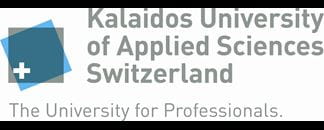Quality and higher education development
Kalaidos University of Applied Sciences has its own quality management system tailored to its needs for systematic and continuous improvement.
Systematic and continuous improvement
The quality management system of Kalaidos University of Applied Sciences (K-QMS) is based on the basic principle of systematic and continuous improvement and includes all departments and service areas of Kalaidos University of Applied Sciences. It lays the basis for all activities aimed at establishing, maintaining and developing quality in all areas of the university. It shows all interest groups the approach with which Kalaidos FH is working towards which goal.
The K-QMS refers to the mission statement and the strategy of Kalaidos UAS and is based on the internationally recognised EFQM model 2020. This requires a comprehensive understanding of quality and very high, customer-oriented quality standards. The consequence is an integration of quality management in all core activities of the university: from strategic company management to the operational processes of the departments and units.
- Vision and strategy provide us with direction and indicate goals.
- The self-concept (values) anchors our approach as we work to achieve our goals.
- Culture forms the fertile ground on which all activities take place.
- Regulations and guidelines give us legal certainty.
- Processes ensure clarity of procedures and responsibilities.
- At the same time, it is a prerequisite for a development-oriented culture that consistently supports the improvement cycle.
The continuous improvement process
The K-QMS is based on the cycle of continuous improvement. This guides all core activities. The quality control cycle can be divided into 3 phases:
Planning
(Development) priorities and goals are set for the core activities in the service areas, which define the expected quality and the indicators for the achievement of goals. The Quality sub-strategy describes overall quality goals and evaluation priorities for a period of several years.
Implementation
Implementation is guided by structures, processes, regulations and guidelines.
Evaluation and further development
The quality of the implementation is checked on the one hand based on the achievement of goals in line with the defined indicators and on the other hand it is checked whether the defined procedure has been adhered to (process compliance). In this last step of the improvement cycle, any measures for improvement are devised that can affect the provision of the service, the choice of indicators, the type of procedure or the goals.
Core elements of the K-QMS
The K-QMS consists of six core elements. These elements are the core of a holistic corporate management system, which enables optimal, harmonious integration of the K-QMS. The systematic involvement of various stakeholder groups in the further development and implementation of the QMS is reflected differently for the various core elements. The main interest groups are integrated according to the target group.
Administrative and academic staff
- Revision and further development of processes and regulations (etc.):
- Process owners model their processes decentrally under central framework conditions and central moderation, including the relevant target groups. The associated documents (regulations) are created accordingly.
- For all those involved in the process, direct and system-controlled feedback can be given to the process owners and monitored by the system.
- Exchange and processing of (quality) topics among managers: All managers (HR, technical) meet monthly for 90 minutes to exchange information and work on Kalaidos UAS topics (including quality topics). This meeting takes place about three times a year as a half-day management workshop for in-depth discussion and processing of relevant (quality) issues - also as a vehicle for "learning from one another".
Teaching staff
- Contact with the (part-time) teaching staff (lecturers, examiners) is decentralised in the institutes or with the course coordinators. Feedback is obtained after the assignment at the end of the lesson and used to further develop the courses (content, methodological and didactic) and for organisation/administration
- A lecturer survey takes place every three years.
Students and customers
- Module and lesson reviews: Systematic, electronic survey of students after completing a module or semester on the quality of teaching and organisation.
- Quality circle and class representative meeting: Periodic and personal meetings between student delegations and course managers (review, outlook) on the quality of the courses.
- Student survey: Every two years, all students are surveyed centrally on study topics and relevant framework conditions. The feedback is systematically recorded and processing measures for central or decentralised improvement and further development are devised and checked by the respective committees.
System review
The K-QMS is periodically reviewed to ensure that it is fit for purpose. This is done on three platforms:
- Event with interest groups
- Review by external peers
- Institutional accreditation
Evaluations
Kalaidos UAS operates a largely systematised evaluation culture. The principle that applies is that only data that is used for quality assurance and further development is collected.
Evaluation processes are divided into centralised and decentralised procedures. Each department develops an evaluation concept that ensures that the results of the most relevant key figures for the performance areas of training, further education and services are recorded and their use for further development is determined. An overarching evaluation concept that is binding for all departments applies to the research area.
The evaluation of the results is carried out consistently via the defined evaluation processes, in which - in line with the continuous improvement cycle - their utilisation is always integrated. This also includes the communication of the results and the measures that are derived from them.


